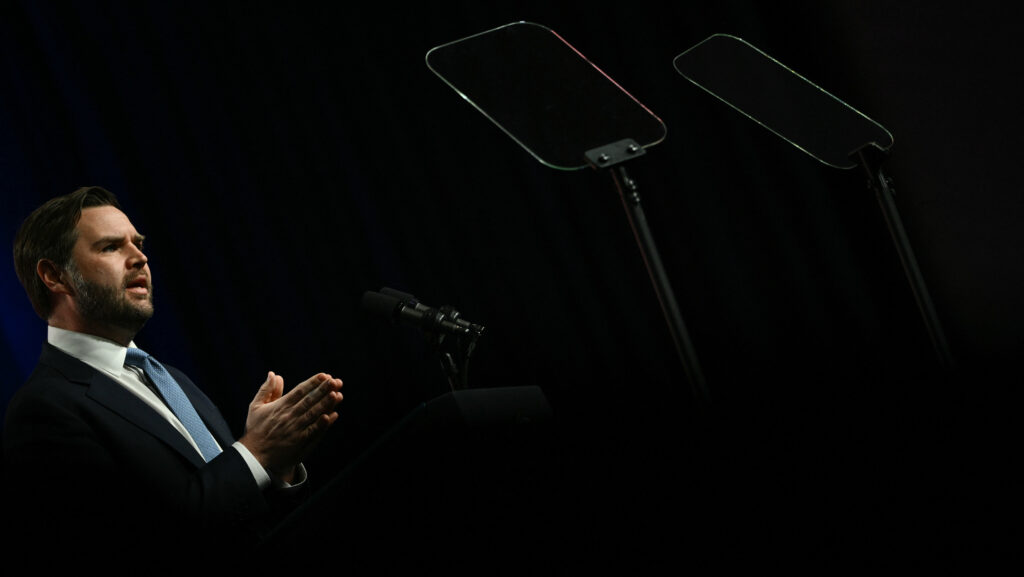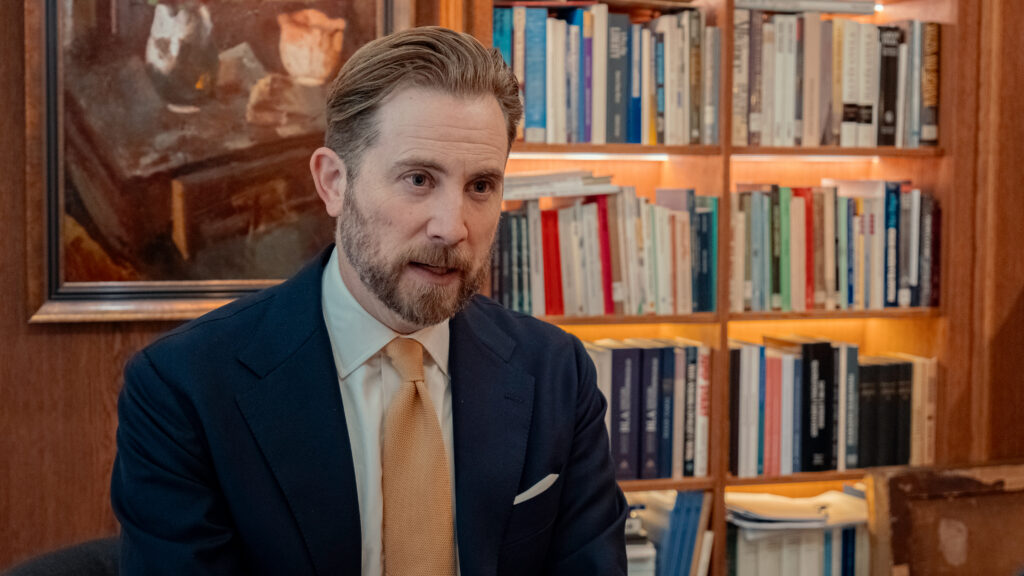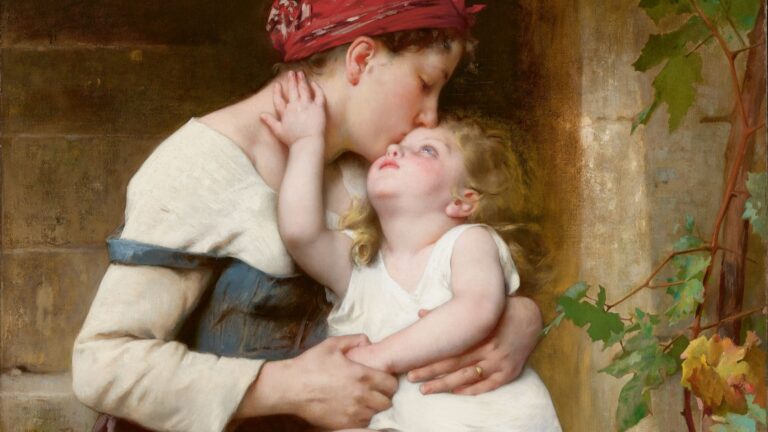The Scrutopia Summer School, held between 19 and 26 July in the picturesque town of Cirencester, United Kingdom, was a deeply enriching experience. With the support of the Hungarian Scruton HUB, two participants, myself and Borbála Láng, had the honour of attending this prestigious programme. Established in 2017 by the renowned philosopher Sir Roger Scruton, the school has since been overseen by his widow, Sophie Scruton, continuing to offer a profound exploration of conservative thought across various disciplines, including philosophy, aesthetics, politics, and moral philosophy.
The programme took place in the idyllic settings of the Royal Agricultural University in the Cotswolds and Sundey Hill Farm, where Sir Roger lived and worked for three decades. The week’s agenda was filled with intellectually stimulating lectures, vibrant discussions, and culturally rich activities that provided insight into Sir Roger’s life and work as well as into broader conservative values.
The week commenced with a thought-provoking lecture by Professor Ralph Weir of the University of Lincoln, a disciple of Sir Roger.
We delved into the complexities of moral realism, tracing its roots from classical Greek philosophy to contemporary thinkers.
Professor Weir emphasized the importance of the ’I–You encounter’ and reciprocity in moral realism, following Scruton’s ideas. The discourse also touched upon animal ethics, discussing Scruton’s views as presented in his book Animal Rights and Wrongs, where the distinction between humans and animals in the moral community was thoroughly examined.
A standout presentation by former Director of the Royal Institute of Philosophy Professor Anthony O’Hear explored the intersection of beauty and politics through the lens of Edmund Burke. He articulated Burke’s vision of society as a ‘partnership between those who are living, those who are dead, and those who are to be born’, stressing the responsibility that binds society’s members.
Beyond the lectures, the programme offered a rich variety of experiences. We visited Cirencester, Sundey Hill Farm, and the historic town of Malmesbury. At Sundey Hill Farm, we walked the very grounds where some of Sir Roger’s most influential works were conceived, an experience that felt both historical and intellectually invigorating. We also participated in an Anglican service at All Saints Church, where Scruton used to play the organ. This was followed by a delightful wine and cheese tasting at a nearby vineyard, embodying Scruton’s concept of ‘oikophilia’, or love of place.
Music played a significant role during the week, highlighted by a concert at Scruton’s own library featuring pianist Stephen Marquiss and soprano Angela Good. Their performance centred around the theme of English Song, with a touch of American influence. Another musical experience was provided by Marquiss, who later in the week introduced us to various approaches to music interpretation, enhancing our understanding of formalist, subjectivist, and historicist narratives.
The academic journey continued with a visit to Oxford, where we explored The Ashmolean Museum and had lunch at the university, followed by lectures on the architecture of Christ Church and the relationship between beauty and the divine. These sessions provided a deepened appreciation for the interconnection between art, history, and philosophy.
A highlight of the week was the gala dinner, where we were joined by Michael Gove, a prominent British conservative politician. His reflections on the intersection of theoretical and practical politics were both enlightening and inspiring. Gove’s adherence to the guiding principle ‘What Would Roger Do?’ underscored the enduring influence of Scruton’s thought in contemporary conservative circles.
Throughout the week,
we engaged in lively debates and heartfelt conversations, fostering a sense of community across borders.
The diversity of participants—hailing from various countries and backgrounds—enriched the discussions, offering new vantage points on global conservative thought. This diversity was not just in nationality but in the perspectives and interpretations of conservative values, making the programme a truly global dialogue on the issues of our time.
In conclusion, the Scrutopia Summer School was more than just an educational programme; it was a transformative experience that brought conservative philosophy to life. The knowledge gained, the friendships formed, and the experiences shared have left an indelible mark on all who attended. The legacy of Sir Roger Scruton was not only honoured but actively lived, making the programme a powerful testament to the enduring relevance of his ideas in today’s world.








